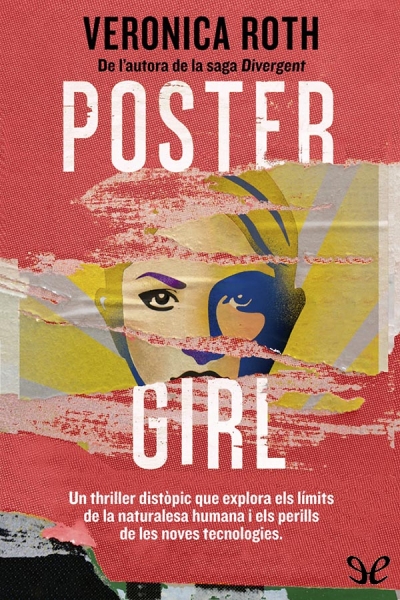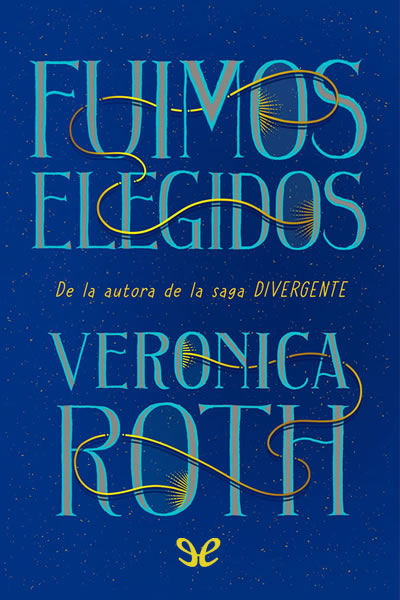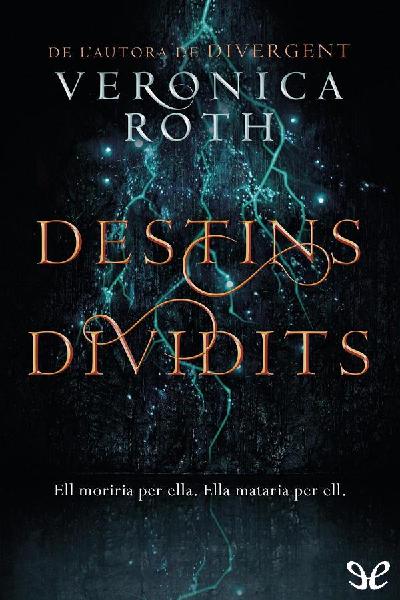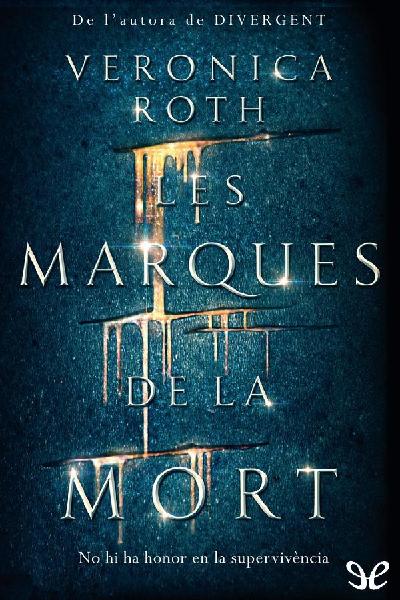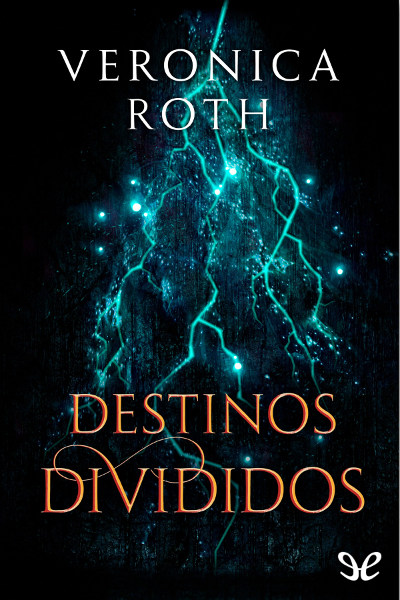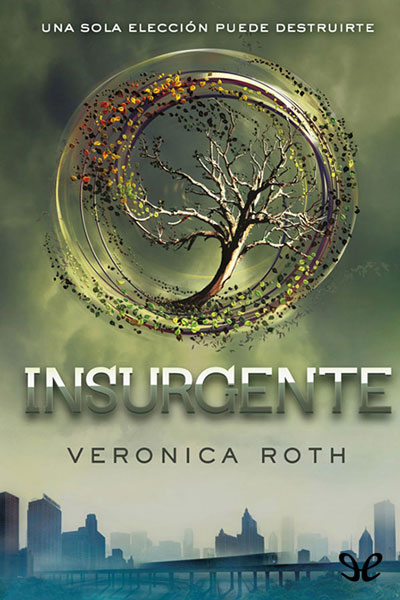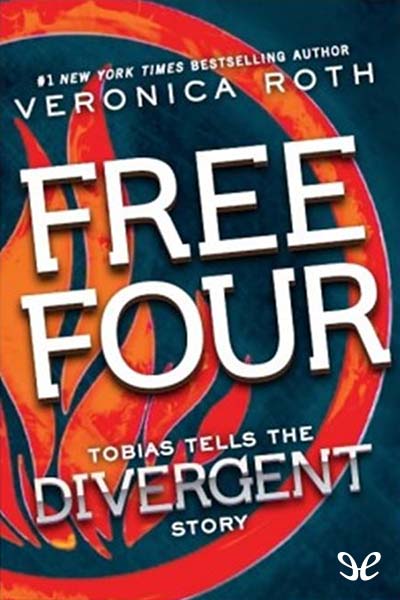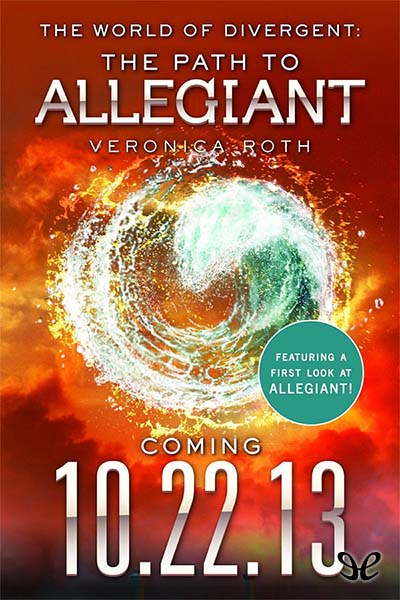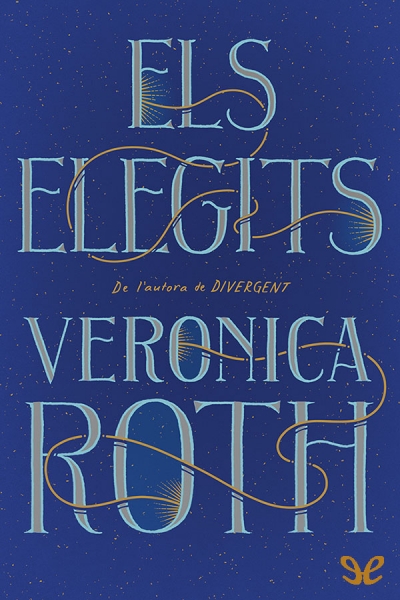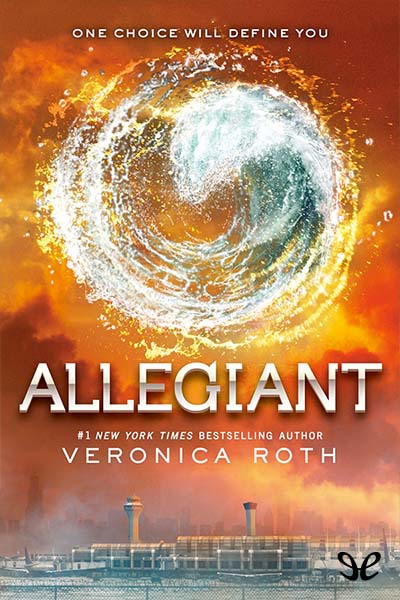oleebook.com
When Among Crows de Veronica Roth
de Veronica Roth - Género: English
Sinopsis
When Among Crows is swift and striking, drawing from the deep well of Slavic folklore and asking if redemption and atonement can be found in embracing what we most fear.
We bear the sword, and we bear the pain of the sword.
Pain is Dymitr's calling. His family is one in a long line of hunters who sacrifice their souls to slay monsters. Now he's tasked with a deadly mission: find the legendary witch Baba Jaga. To reach her, Dymitr must ally with the ones he's sworn to kill.
Pain is Ala's inheritance. A fear-eating zmora with little left to lose, Ala awaits death from the curse she carries. When Dymitr offers her a cure in exchange for her help, she has no choice but to agree.
Together they must fight against time and the wrath of the Chicago underworld. But Dymitr's secretsand his true motivesmay be the thing that actually destroys them.
"Lovely, lush, and full of otherworldly longing, this modern fairytale about righteousness...
Descargar
Descargar When Among Crows ePub GratisLibros Recomendados - Relacionados
Reseñas Varias sobre este libro
I usually don't star rate books but I loved this one so much I'm going to give it all the stars. A novella that harbors inside it a wonderfully fleshed out world of Slavic myth living just under the surface of modern Chicago. (yay Urban Fantasy!) Batting way above its average in character development and emotional intimacy, this is a story about a man looking for redemption even when it bleeds him, even when he doesn't deserve it. And about the people, the monsters, who have every reason to hate him but end up doing something quite different. There are moments of terror and adventure and violence. There are also moments of quiet intimacy. Just goes to show you can do a lot of work in a very small number of pages and still tell a satisfying story. 5/5 would return to this world and these characters in a heartbeat.
I received a free ARC which in no way impacted my honest review.195 s2 comments s.penkevich1,194 9,441
How did you carry it without being able to bear it?
Early on in Veronica Roths Among the Crows, an old Chicago movie house that only plays double feature horror films is revealed to be operated by creatures of Polish myth who feast on human fears. This is the sort of devilishly delightful atmosphere Roth brings to life in her new urban fantasy where the old world meets the new one in shadowy corners of Chicago populated by Slavic stryga, leshy, banshees, rusalka, zmory and more. As someone also of Polish descent lurking around the lakeshores of Lake Michigan, I had to dive into this succinct yet fully realized story that grapples with questions of pain, sacrifice, family heritage and honor in a world just next to our own where the old magic thrives. We follow Dimytr, who has traveled from Poland to seek an audience with the powerful witch of legend, Baba Jaga, offering the cursed Ala a cure for her torments if she can bring him to the witch. But in a world where magic can kill more swiftly than heal and the knights of the Holy Order are always on the hunt to exterminate those beyond human, loyalties will be tested while lives hang in balance. Veronica Roth crafts a fascinating and dynamic world full of danger, curses and quests in Among the Crows as we examine generational trauma and the pains we carry.
Men always mean harm. The question is, when?
I have a bit of a soft spot for Veronica Roth and Im always rooting for her. I find she excels at creating complex and intriguing worlds, though Ive often felt the execution falls flat right at the end. Such was the case with the Divergent trilogy, or the recent Arch-Conspirator which was a rather engaging sci-fi retelling of Sophocless Antigone with concepts soul storage but the narrative came down in a tailspin for a crash landing. But I really respect her originality, find she can write quite vivid scenes that fill your mind with wonder, and love that she understands that novellas can be a perfect length to not overstay a storys welcome and that sometimes less is more with world building that allows the readers imagination to co-create if you point them in the right direction. So seeing Roth try her hand at Polish mythology set in modern Chicago had me quite excited and I have to say, she nails it here. In a short span she is able to construct a rather marvelous and magical urban fantasy world and give us empathetic characters to move about in it. Personally I love a story that works how poet Charles Simic described how he found his favorite poems to be a bank robbery: you get in, get attention, get the goods and get out fast. And Roth does this well, even throwing some major twists in along the way but sticking the landing with spectacle and grace.
Eternity is long. Time enough for hearts to soften.
I really enjoy the characters here and the story rotates through the perspectives of Dimytr, Ala and Niko. It threads their stories in a way that enhances each and gives us hints of backstory that serves the narrative well by doing a great deal of development in a short space. But also we see a lot of characters that are caught between two worlds in a variety of ways. Ala is not human but gentle enough in spirit to live among mortals but fierce enough to endure their cruelty, which also makes her feel alienated as her family curse was misunderstood as mental illness by humans. But beyond that we see characters who have strong accents and feel no longer part of Poland yet not fully American, or they are not quite magical yet not fully human, or they cannot fully invest in the present or the future still reeling from the scars of the past. These scars come in many forms, such as a curse that functions on many levels, one of which being a metaphor for generational trauma, or references to things a characters small pox vaccine scar or the political turmoil and regime changes in Poland throughout the 20th century that show history leaves scars on all those it touches.
The burdens and pain born by these characters define them in many ways yet it is how they choose to carry on that truly matters. The curse that is central to the story shows how that burden can be carried down generationally, but we also see how the horrible deeds of the past are also felt as a great weight by those who have inherited that legacy as well. This works particularly well blended with a a folklore that was largely pushed aside by Christianity in a country that, due to imperial repression and economic crisis even before the upheavals of WWII and Soviet occupation, saw a sizable population emigrate to the United States to settle primarily in New York, Chicago and Detroit (the latter being where my own family arrived), and we see the legacy of the past working in new ways in the new world. In short, these characters are all learning to live among the crows.
Baba Jaga (while you typically see it spelled Yaga, Polish spelling tends towards Jaga hence Roths use of it here) is ly the most familiar element of Polish folklore here and has a position of great power in the Chicago underworld. Those who deal with her must make payment in the form of sacrifice which ushers us into a realm of investigation on pain and how pain can be not only a punishment but a price. It makes me think of that Full Metal Alchemist series where magic worked on the concept of equivalent exchange. This is not only for the mythical creatures, however, but also the Holy Order who hunts them must divide their soul and keep one half in their sword, a price paid in pain for power. Now return this to the ideas of history and legacy and we see a long legacy of power gained through the pain of others and one might understand why those of ancient myth who trade their own pain for gain would frown upon the world of humans.
Among the Crows doesn't come out until next week so I'll post a more in-depth review when it does but this is a fast but fascinating and fun read and Im pleased to say that Veronica Roth manages to uphold her world building through her execution here. Theres a lot of whimsicality I love, such as the flower that unravels most curses but it can only be touched by mortal hands, meaning those who need it cant obtain it but those who obtain it ly have no use for it (this becomes an essential part of the ideas on trust and if the aid of another is truly selfless or earnest), or objects that will kill those who touch them but without it one will die. The puzzles and paradoxes are fun, the urban fantasy is exciting, and we even get a brief queer romance that will make you say aww. Roth pulls a big twist near the end that I worried would bring about the collapse of the novel but she really lands it here. Plus we have Slavic folklore in Chicago, how can you not love that. A worthwhile read full of magic. Dzi?kuj? za przeczytanie.
4/5folklore magical mythology ...more192 s30 comments EmmaSkies208 5,197
4.25 ?? WOW this was really fantastic and before I say anything else I want to say that you should totally go into this book without reading the synopsis because it gives you just a bit too much information in my opinion. Anyway
What a great novella. Slavic folklore among the modern, urban streets of Chicago. A quest - both physical and internal - themes of displacement and loss and Christian imperialism, a marrying of the mythical and mundane that I find so compelling about urban fantasy (a stryzgon, a zmora, and a mysterious mortal cruising through modern Chicago in a beat up cloth-top jeep), more stuff I typed out and then deleted because as mentioned above I think this is one best gone into with not too much info, especially given how short it is. Theres just a lot in here that worked for me.
I do feel the character relationships were perhaps just on the cusp of being completely satisfyingly fleshed out, ly due to the length, but it didnt impact my enjoyment of the story much.
A modern day fairytale. I really enjoyed this.
[ARC provided to me by the publisher for free under no obligation]185 s2 comments ivanareadsalot544 186
First of all, I would to thank Edelweiss and Tor Books for the opportunity to read and review this ARC.
"We bear the sword, and we bear the pain of the sword."
????
Autor del comentario:
=================================
